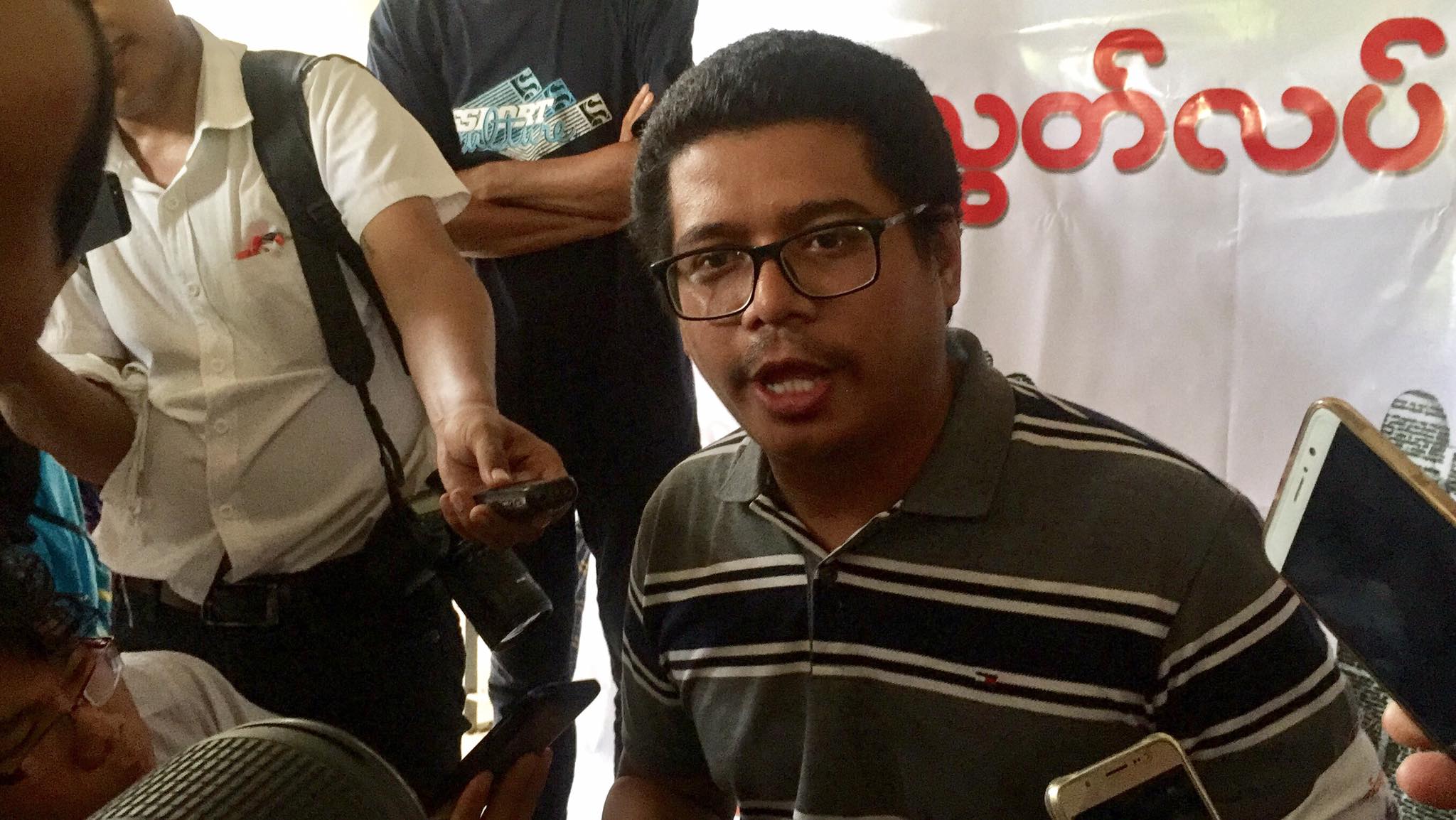The author of a satirical article that appeared in a March edition of The Voice Daily was released from police custody on Friday after a court dropped an online defamation charge that had been brought against him, though the newspaper’s editor-in-chief will still stand trial over the offending piece.
The two men had both been facing charges under the controversial article 66(d) of the 2013 Telecommunications Law, but a second hearing at a court in Rangoon’s Bahan Township on Friday saw the author of the article, Kyaw Zwa Naing, walk free.
Chief editor Kyaw Min Swe was not so fortunate, however, and faces up to three years in prison if found guilty of the 66(d) charge, which prohibits “extorting, coercing, restraining wrongfully, defaming, disturbing, causing undue influence or threatening to any person by using any Telecommunications Network.”
“The judge ruled that the filed charge was not applicable to sue the satire columnist British Ko Ko Maung and dropped the charge,” The Voice said in a statement, referring to Kyaw Zwa Naing by his pen name. The newspaper added that Kyaw Min Swe’s bail request was denied for a second time.
Kyaw Zwa Naing said Friday’s decision to release him appeared to be based on technical grounds and that Kyaw Min Swe was deemed ultimately responsible for the posting of the satire article online.
“They assumed that Kyaw Min Swe, being the editor-in-chief himself, has the main responsibility regarding publishing the satire online. It was ruled that it is not appropriate to sue me under the Telecommunications Law,” he said after Friday’s hearing.
Kyaw Zwa Naing’s satirical take on the country’s long-running civil war was published on 26 March, with the article coinciding with the screening of “Union Oath,” a film that aired on the military-owned Myawaddy TV channel.
Headlined “Oath of the Nation of Bullets,” Kyaw Zwa Naing’s article reads, in part, “When the number of soldiers of the lowest ranks killed in battle has reached a satisfactory point, the major leaders hold celebratory peace conferences from time to time. Only the soldiers on both sides of the frontline are shooting their butts off.”
Lieutenant Colonel Tun Tun Oo, the plaintiff in the case, took offence and lodged a complaint first with the Myanmar Press Council, saying the article had harmed the military’s dignity. The council, which is supposed to serve as a mediating body in cases involving disputes with the media, failed to do so and a legal case was filed against The Voice duo last month.
“Bail should be granted to Kyaw Min Swe as he is an editor-in-chief of a reputable media outlet and he will not avoid the trial,” Kyaw Zwa Naing told reporters on Friday.
[related]
“For the sake of Kyaw Min Swe’s dignity, he should be released on bail. In fact, as I spent some time with Kyaw Min Swe, I learned that Kyaw Min Swe is not in good health. Even when he submitted sufficient medical documentation, the court denied bail. For that, the court ruling is questionable.”
The case involving The Voice is not the first to put members of the media before a judge for online defamation, and last week journalists in Rangoon and Mandalay launched a “white armband” campaign condemning the growing number of prosecutions taking place under article 66(d). Reporters outside the Bahan Township court on Friday distributed pamphlets calling for abolition of article 66(d), which has also been used to prosecute average citizens for allegedly defamatory social media posts.



